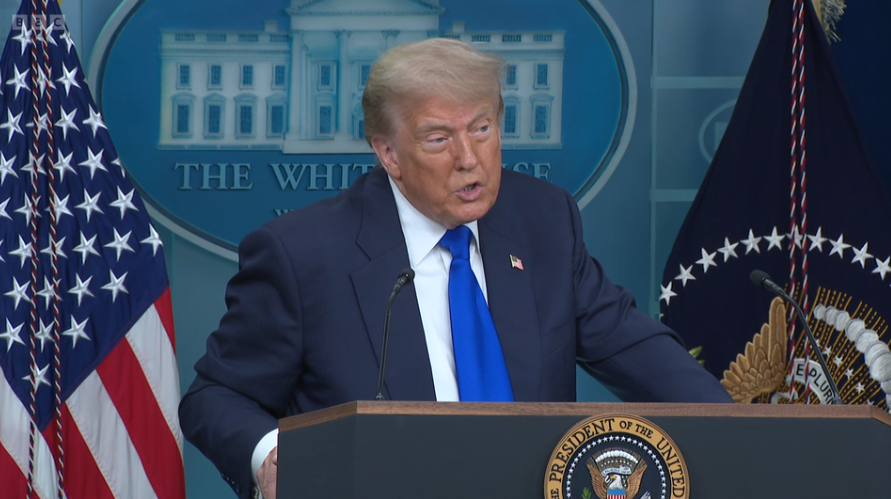Steve Paikin was the face of The Agenda, TVO’s flagship current affairs program. Paikin says the only agenda the show had was to highlight issues of importance.TVO/Supplied
TVO’s flagship current affairs program, The Agenda with Steve Paikin, has come to an end.
During 19 seasons hosting the hour-long daily show’s in-depth discussions and interviews, Paikin grew his reputation as one of Ontario’s – and Canada’s – most trusted television journalists.
Indeed, the Hamilton-raised (and Hamilton-proud) broadcaster was selected to moderate four federal and five Ontario provincial leaders’ debates during that time.
Paikin, who turned 65 earlier this month and will remain at Ontario’s publicly funded English-language educational media company in a reduced capacity, spoke to The Globe and Mail in the middle of The Agenda’s final week of shows.
You’ve been with TVO since 1992. Would you describe yourself first as a Canadian or an Ontarian?
I would describe myself first as a Leafs fan. I think you can be both, proudly so. I’ve spent more than 40 years trying to get people to understand that what happens at Queen’s Park is of significance and relevance in their life, so I guess my professional focus has been more provincially focused than nationally focused.
In your work as a journalist and a public historian – you’ve written books on premiers Bill Davis and John Robarts – you really do focus on Ontario as sort of distinct society. Do you feel that there’s something unique about Ontario identity?
I absolutely do. Now listen, every province can say the same thing. But because Ontario is so much a chunk of the country, in terms of population, area, gross domestic product, most Ontarians tend not to think of themselves as being a part of that distinctive identity. But I believe it exists.
Is that interest in Ontario as Ontario something that pre-existed your days at TVO?
My parents purchased for my kid brother and me in a charity auction the right to go have lunch with then Ontario Liberal leader Stuart Smith. This was in 1976, I think. I remember very well to this day eating in the cafeteria in the basement at Queen’s Park and then following him around for a couple of hours. There’s no doubt that a seed was planted on that occasion.
That’s a great origin story. I should make clear you’re not fully retiring yet.
What I’m gonna continue to do is the weekly #onpoli podcast, write a weekly column, a monthly town-hall show called TVO Today Live. And I do another five-minute occasional YouTube show called Ontario Chronicle.
The Agenda will be missed. For the fans of the show, it could feel like the last remaining agenda-free TV discussion or debate out there.
That clearly was what we were going after. The only agenda we have is to put on the public’s radar the issues that we think are the most important ones to discuss at the dawn of the 21st century, which is where we were when the show debuted in 2006. We didn’t come at things from an ideological point of view.
My favourite expression of yours when you’re moderating a discussion, you’ll sometimes say, ‘Yikes!” It’s kind of a neutral reaction, but it also makes you seem like you’ve come out of the 1950s.
If by that you mean I’m old school: Yeah, I’m old school. I don’t really believe, certainly not for me, that advocacy journalism is where it’s at. I have four kids. My oldest is a card-carrying member of the Liberal Party of Canada. My second oldest is a New Democrat. My third oldest is a communist. And my baby just got a job working in Doug Ford’s government. If that doesn’t show you how completely non-partisan and ecumenical I’ve been over the years, then nothing will.
Do you go to the extreme of not voting?
I do vote. I’ve voted for all of them.
So you’ve voted NDP, you’ve voted Liberal, you voted Progressive Conservative?
And Green.
Did you do that just so you can say that? Or do you really sort of switch back and forth through persuasion?
That’s exactly right and I never vote in the advanced voting. I always vote on election day because I want to wait until the very last minute to consider everything on offer from all the parties before making my decision.
My theory about you is that in fact you are a partisan, but of a party that doesn’t exist anymore – which is the pre-1985 version of the Ontario Progressive Conservative party since that era interests you so much.
I believe that I am capable of having an enormous amount of respect for some of the people that you are referring to – the Bill Davises of the world, the Roy McMurtrys, the Darcy McKeoughs, the John Robarts – without feeling like I was part of their team. Because I wasn’t part of their team.
If I could go back to that stage in your career where you switched from CBC to TVO, was there something specifically about TVO’s brand of public broadcasting that that lured you over?
I really enjoyed my time at CBC, but I was a TVO viewer. The mission of the place is right up my alley – no commercials, high quality, thoughtful, makes you think. You know, 99 per cent of the people I talked to at the time thought I was nuts. They said: “What are you gonna leave a big national broadcaster to go to this little regional television station?” And I just remember saying, “I got a hunch, I’m gonna do just fine there.”
This interview has been edited and condensed.











